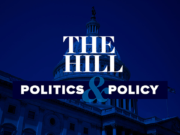This piece originally appeared in The Well News on April 18, 2025.
This misconception has stubbornly dominated American political thinking for decades. Recent electoral contests have delivered the latest in a series of stunning repudiations of this assumption.
From April’s Florida legislative races to a high-profile Wisconsin Supreme Court contest and even the 2024 presidential election, we saw yet more evidence against campaign finance determinism.
In Florida, Republican primaries for House District 32 saw three GOP candidates collectively spend $617,000 competing for a position that pays just $29,697 annually. This staggering ratio — spending 20 times the annual salary to win a nomination for an election — demonstrates candidates’ belief in money’s persuasive power. Yet the biggest spender lost by three points.
More dramatically, Wisconsin’s Supreme Court race revealed money’s limitations on a grand scale. Judge Susan Crawford defeated former Attorney General Brad Schimel despite facing an unprecedented financial onslaught. Elon Musk personally invested over $21 million to defeat Crawford, even traveling to Wisconsin to hand out million-dollar checks to those who signed a petition. This extraordinary intervention failed spectacularly, with Crawford winning by eight points.
“Wisconsin stood up and said loudly that justice does not have a price, our courts are not for sale,” Crawford said in her victory speech. Her triumph proves again that even massive resources from the world’s richest individual cannot guarantee victory.
The 2024 presidential contest provides more compelling evidence. Despite a massive fundraising edge — Kamala Harris’ campaign spent $1.115 billion to Trump’s $449 million — Harris lost decisively.
Several factors explain why the candidate with the most money doesn’t always prevail.
First, media saturation creates diminishing returns on campaign expenditures. In environments where voters are bombarded with political content, additional spending yields progressively smaller persuasion benefits.
Second, today’s polarized electorate is significantly less persuadable in the first place. With fewer undecided voters, massive ad buys aimed at changing minds have limited impact.
Third, voters have always been skeptical of big spenders in campaigns. It can trigger a backlash, as appears to have happened in the Wisconsin court race.
Finally, social media has democratized campaign communication, allowing candidates with fewer resources to reach voters directly without massive media expenditures.
None of this suggests that money has become irrelevant. Campaigns still require substantial resources to operate effectively. However, the evidence indicates that, once basic thresholds are met, the utility of additional financial advantages declines sharply.
Yet we still hear calls to “get money out of politics,” with demands and even new laws to limit contributions and campaign spending. Many laws mandate the disclosure of contributions of even a single dollar.
Such restrictions fundamentally contradict the genius of our First Amendment, which allows (or should allow) unfettered political speech. It permits everyone, rich or poor, to have their say. This freedom is a vital safety valve for our system of government. Limiting contributions or campaign spending means less speech and less information for voters.
Rather than expanding restrictions, we should reform our disclosure requirements to encourage small donors to support candidates with modest contributions. In our polarized political system, a sensible $100 donor will often decide that the risk of harassment or reduced employment prospects is not worth the effort.
Yet 41 of our 50 states force disclosure of a donor who makes just five $25 contributions during a campaign. Most of these $100 or less disclosure thresholds have been frozen at those levels since the 1970s, when the dollar was worth more than five times today’s value.
As the Supreme Court ruled in the landmark case New York Times v. Sullivan, “debate on public issues should be uninhibited, robust, and wide-open.” To protect our right to robust campaign speech, we need fewer regulations, not more. And we need sensible disclosure rules to allow everyone to participate.














